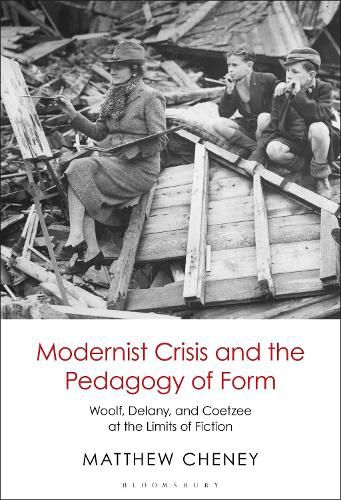Readings Newsletter
Become a Readings Member to make your shopping experience even easier.
Sign in or sign up for free!
You’re not far away from qualifying for FREE standard shipping within Australia
You’ve qualified for FREE standard shipping within Australia
The cart is loading…






What is the role of the author in times of crisis? Modernist Crisis and the Pedagogy of Form examines how Virginia Woolf, Samuel R. Delany, and J. M. Coetzee developed literary strategies in common to cope with crisis periods they were anticipating, living through, or looking back on. Matthew Cheney outlines how the three writers shaped their art to create an author/audience relationship congruent with the goals of critical pedagogy espoused by such thinkers as Paulo Freire and bell hooks.
Seeking to stimulate ethical thought, Woolf, Delany, and Coetzee required their readers to be active interpreters of their texts’ forms, contents, and contexts. By pushing against fiction’s fictionality, these writers of very different backgrounds, geographies, privileges, situations, tastes, and styles discovered complex ways to address the world wars in England, the AIDS crisis in New York, and apartheid in South Africa, going so far as to question the value of fiction itself.
$9.00 standard shipping within Australia
FREE standard shipping within Australia for orders over $100.00
Express & International shipping calculated at checkout
What is the role of the author in times of crisis? Modernist Crisis and the Pedagogy of Form examines how Virginia Woolf, Samuel R. Delany, and J. M. Coetzee developed literary strategies in common to cope with crisis periods they were anticipating, living through, or looking back on. Matthew Cheney outlines how the three writers shaped their art to create an author/audience relationship congruent with the goals of critical pedagogy espoused by such thinkers as Paulo Freire and bell hooks.
Seeking to stimulate ethical thought, Woolf, Delany, and Coetzee required their readers to be active interpreters of their texts’ forms, contents, and contexts. By pushing against fiction’s fictionality, these writers of very different backgrounds, geographies, privileges, situations, tastes, and styles discovered complex ways to address the world wars in England, the AIDS crisis in New York, and apartheid in South Africa, going so far as to question the value of fiction itself.